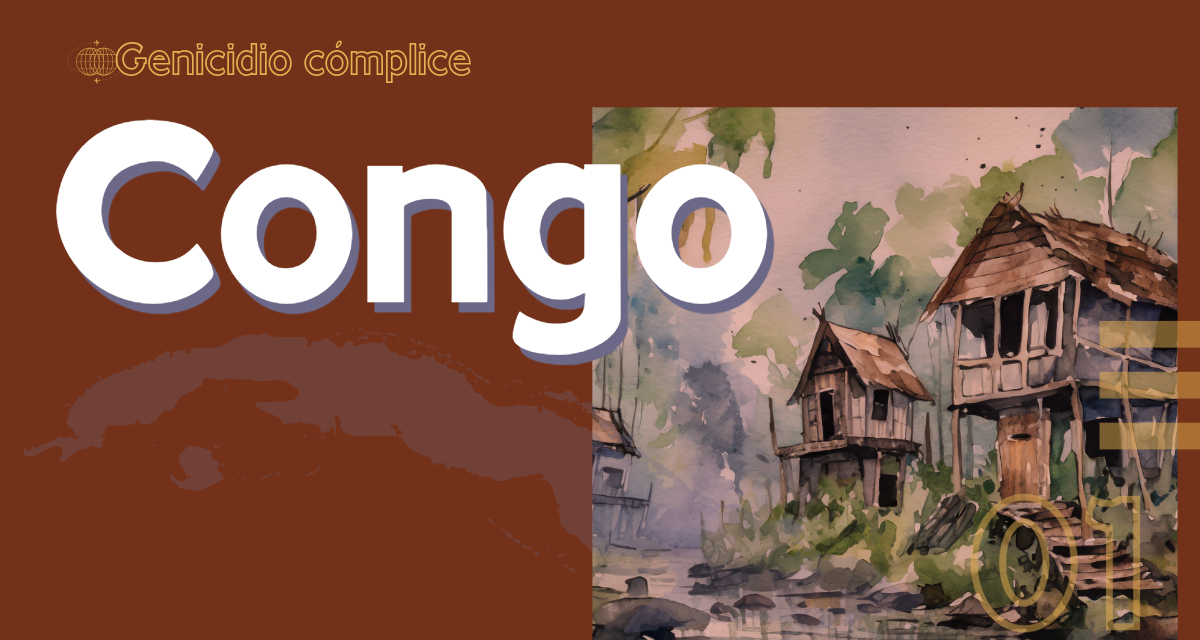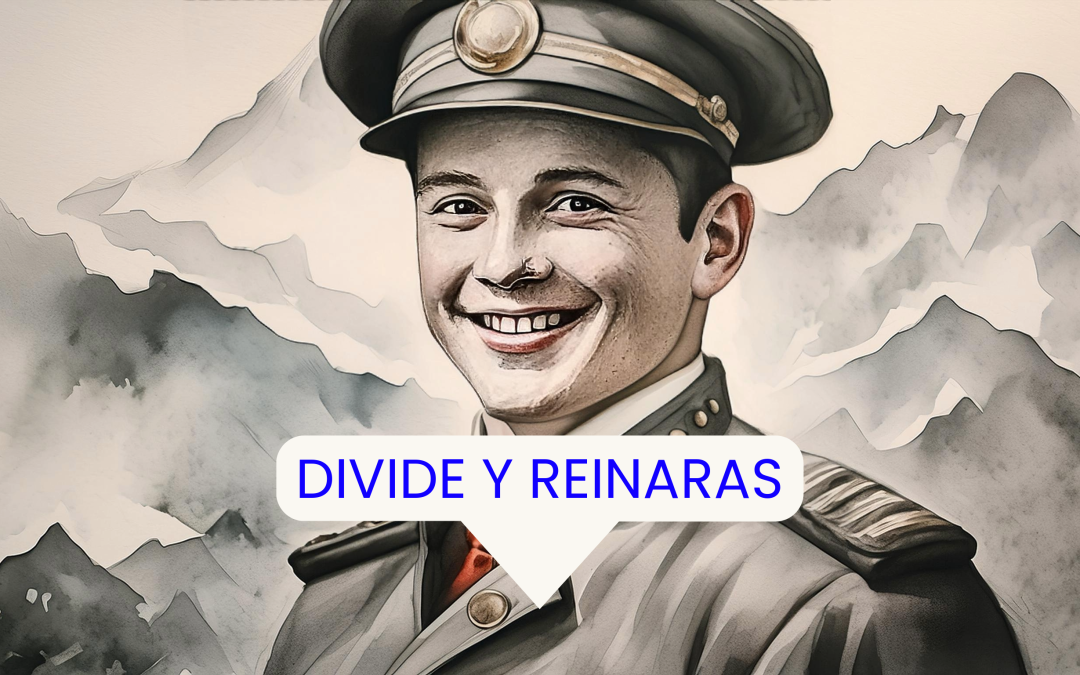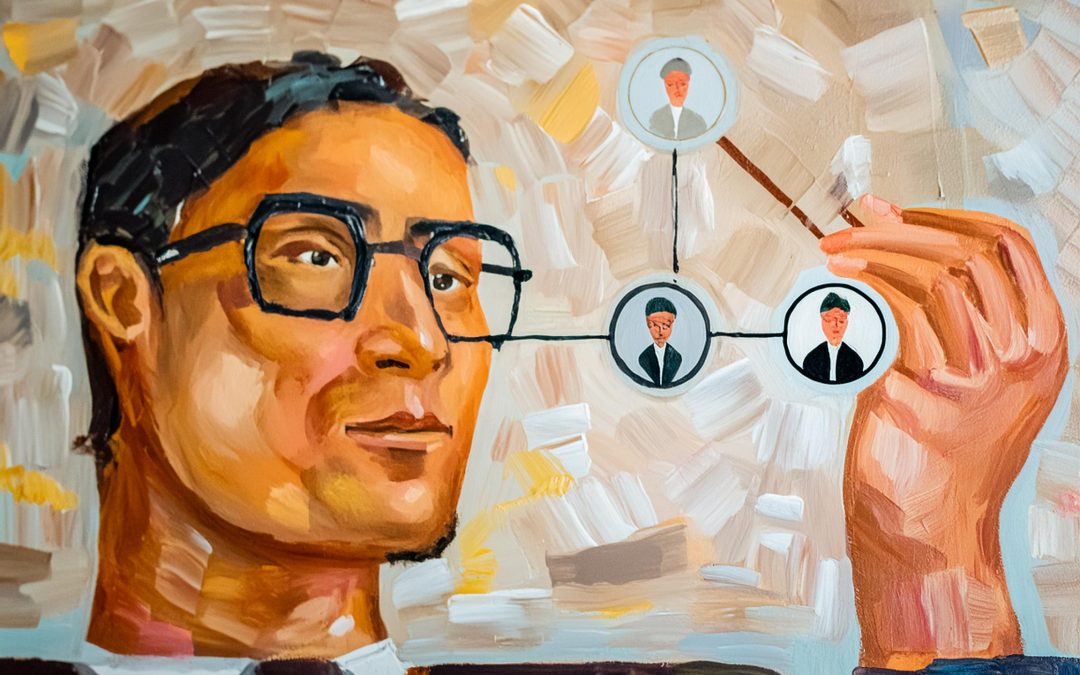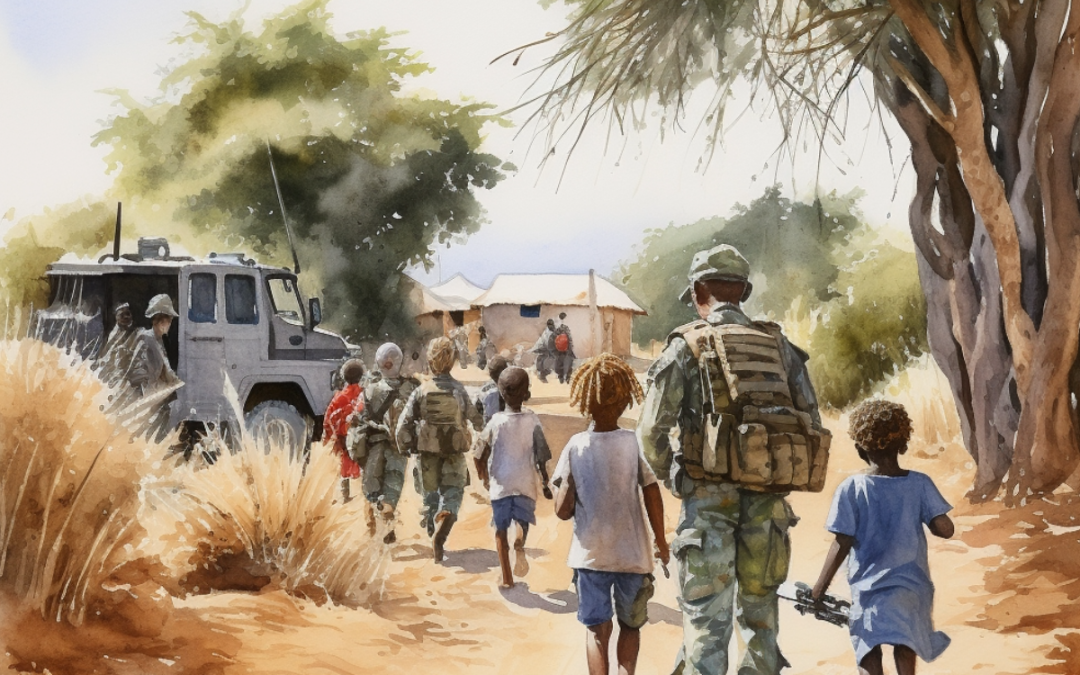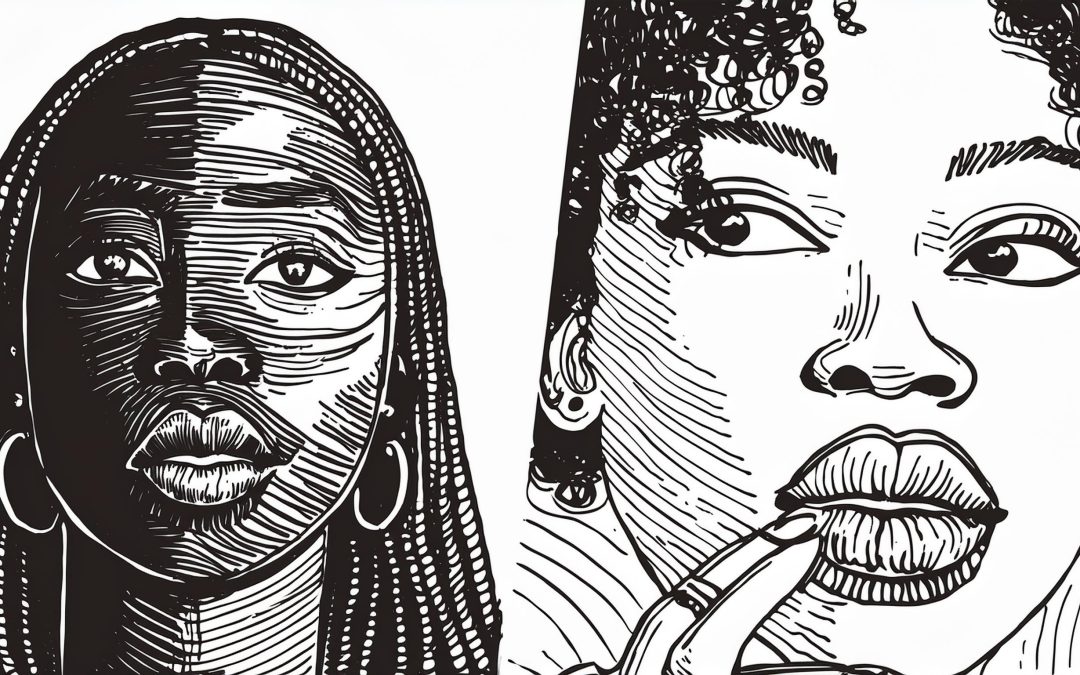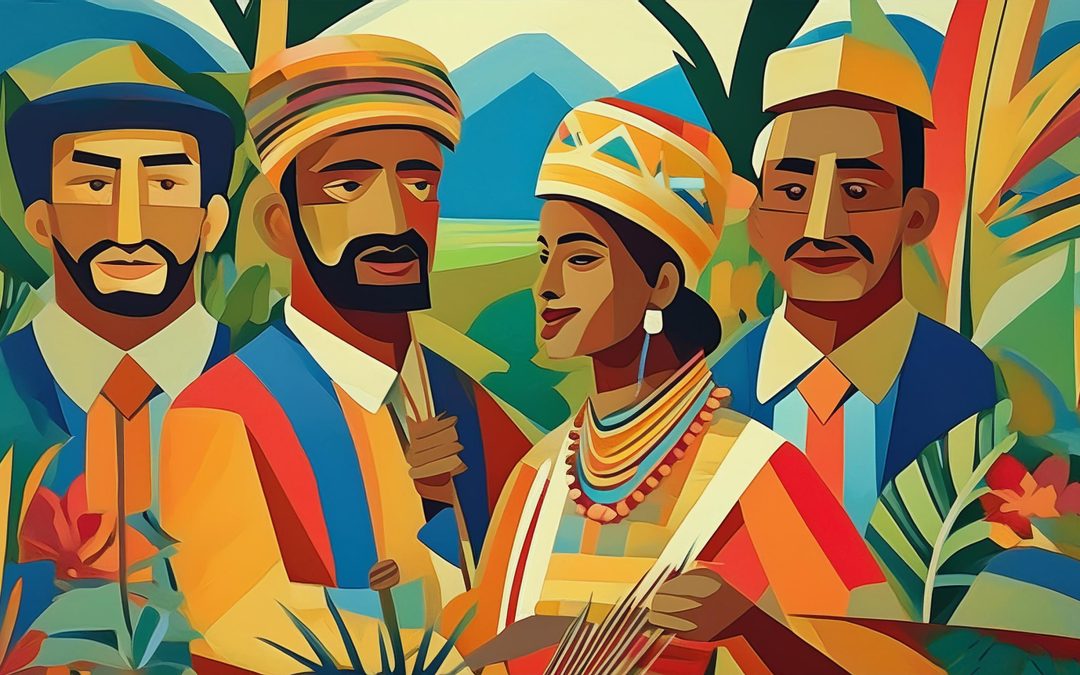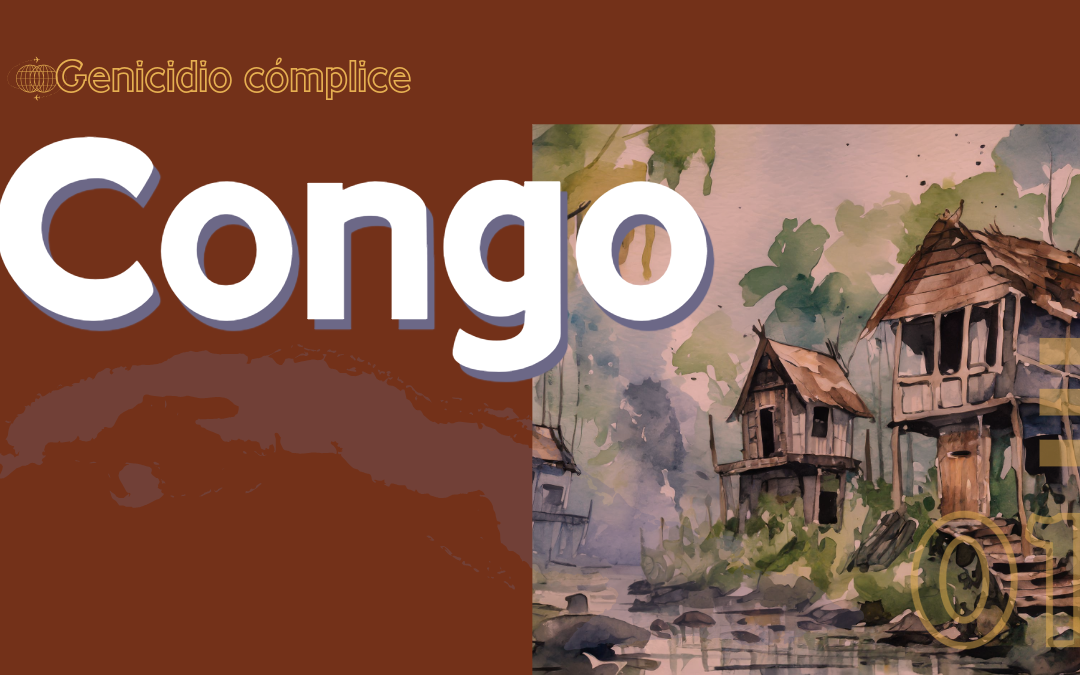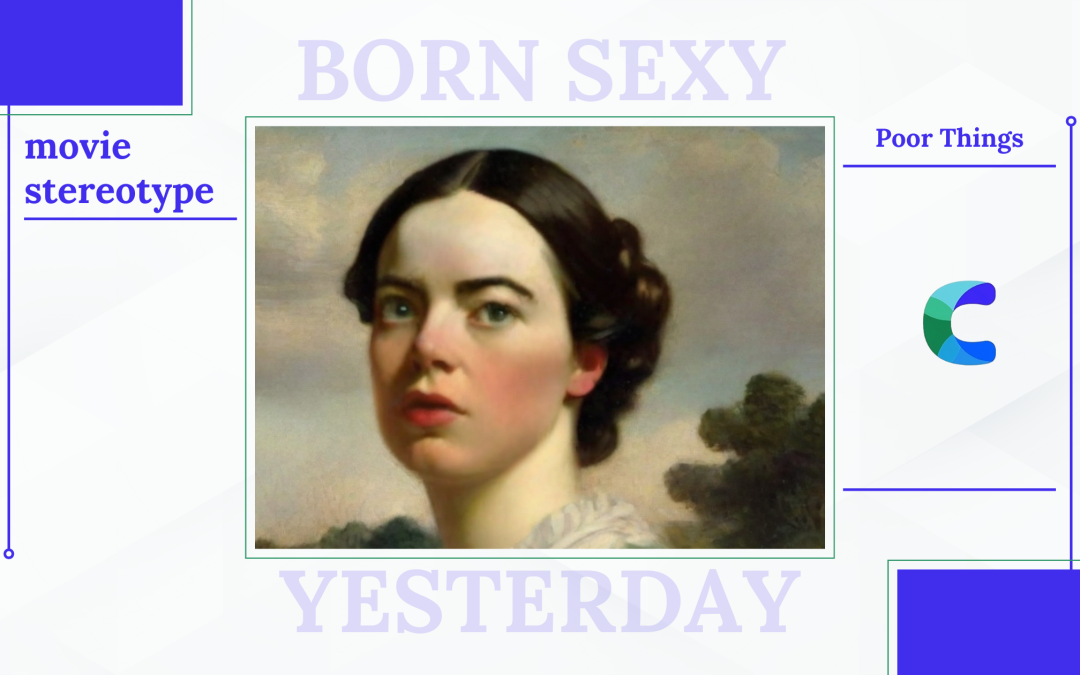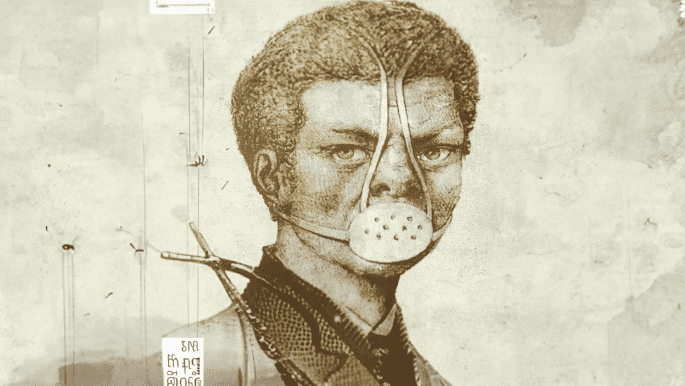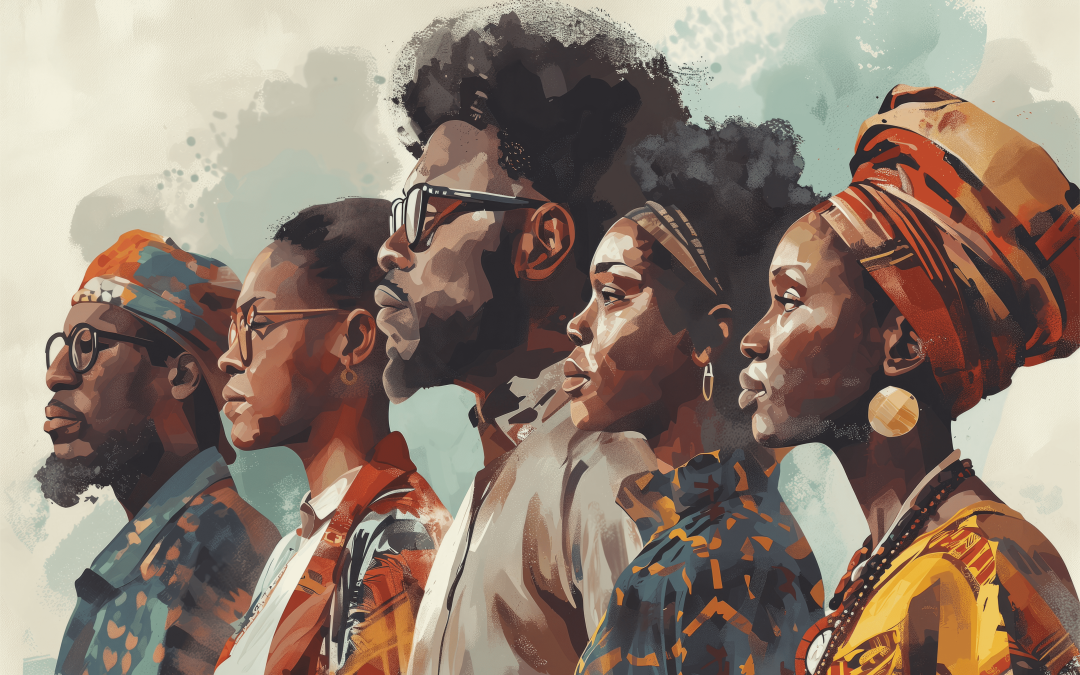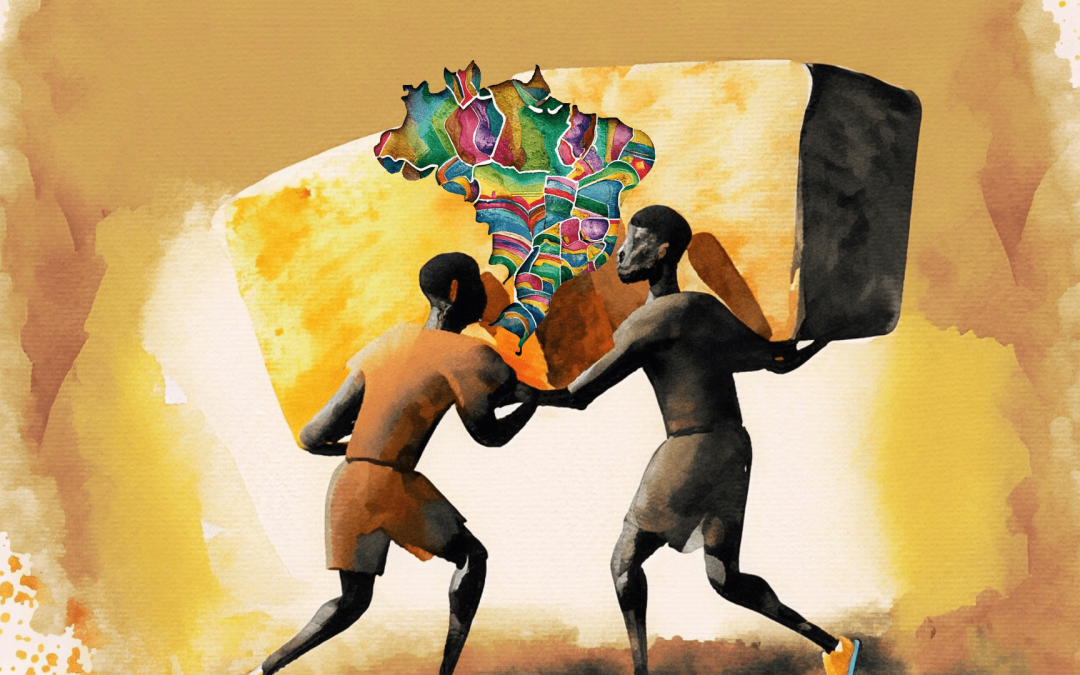In the heart of Africa, a catastrophe is unfolding in the Democratic Republic of Congo, shrouded in neglect and indifference on the part of the very powers that claim to defend human rights. As a journalist of African descent specializing in human rights, the deafening silence surrounding Congo's suffering is not only alarming, it is a clear testimony to the selective empathy of the international community.
Mass Displacement at a Time of Genocide
Millions of Congolese are displaced, their lives disrupted by violence orchestrated by militias backed by Western nations greedy for the region’s resources. How convenient for the US, UK, France and Israel to turn a blind eye to the bloody profits reaped from the suffering of the Congolese people.
Humanitarian crisis in Congo? Neee
The mere mention of “humanitarian crisis” should make the world shudder, but oh, don’t we have more pressing matters to attend to? The conflict, fueled by rebel groups such as the M23, has become a playground for power struggles as innocent lives are extinguished, families are torn apart and futures are obliterated.
Internally displaced people, including countless vulnerable children, cluster in makeshift shelters, haunted by the specter of violence and exploitation. And what do we do? We offer thoughts and prayers as we look away from the reality of their suffering, conveniently forgotten amidst the noise of “more newsworthy” events.
Beef entre Kendrick y Drake: ¿Qué Opinaría William Lynch?
Bienvenidos a la última temporada del drama interminable del rap! En esta esquina, tenemos a Kendrick Lamar, rompiendo récords a diestra y siniestra con su nuevo hit “Not Like Us”, que alcanzó los 100 millones de streams en tan solo 9 días, superando a "God's Plan" de Drake. En la…
Unmasking Algorithmic Racism: The AI Circus Unleashed!
Keywords #AlgorithmicRacism #AIbias #MitigationEfforts #InclusiveTechnology #EthicalAI #DigitalRights Ladies and gentlemen, gather 'round the digital campfire as we unveil the mesmerizing spectacle of algorithmic racism! 🎩✨ Yes, you heard it right—the greatest show on silicon earth! Imagine a world where AI systems, those seemingly neutral automatons, moonlight as undercover bigots. They’ve…
Wagner Group: A New Colonialism in Africa’s Hard Times
In a tragicomic twist that even Shakespeare himself would not have dared to imagine, Wagner, an obscure Russian mercenary group, has emerged on the African stage with the finesse of an elephant in a china store. With one foot in Libya and the other in the Central African Republic, these mercenaries
Unbelievable Youthforia Controversy: When Makeup Turns into Blackface Nightmare
Welcome to another episode of "What Were They Thinking?" featuring none other than Youthforia, the makeup brand that decided to give us a masterclass in how not to do inclusivity. Yes, we’re talking about that foundation shade—so dark, so devoid of undertones, it might as well be blackface makeup from…
Unveiling Mestizaje: The Blurred Lines of Race and Identity in Latin America
Introduction to Mestizaje: The term mestizaje is a prismatic concept, reflecting a kaleidoscope of racial and cultural intermingling that has been a cornerstone of Latin American identity for centuries. It's more than just a word; it's the embodiment of a historical tapestry, woven from the threads of indigenous, African, and…
Silent Genocide in Congo: a deadly deal?
In the heart of Africa, a catastrophe is unfolding in the Democratic Republic of Congo, shrouded in neglect and indifference on the part of the very powers that claim to defend human rights. As a journalist of African descent specializing in human rights, the deafening silence surrounding Congo's suffering is…
Born Sexy Yesterday: How “Poor Things” is subverting stereotypes?
Today we're going to talk about a movie stereotype so ubiquitous that it could compete with popcorn in movie theaters. It's called "Born Sexy Yesterday," and no, it's not the title of a low-budget romantic comedy. This cliché introduces us to a woman who is as innocent and pure as…
Advertisements for the Sale of Enslaved Persons? A critical look
The advertisements for the sale of enslaved individuals during the era of slavery are an indelible stain on humanity's evening dress, remaining the perfect reminder of our capacity to be terribly cruel to one another. Although we officially left it behind (on paper, because in practice, well, you know...), the…
Chinese Lunar New Year for Afro-descendant Populations: Connecting the disconnected
The Chinese Lunar New Year, also known as the Spring Festival, is not just a pivotal event within China but has grown to captivate a global audience. Marked by vibrant displays of cultural richness, it encapsulates themes of renewal, hope, and the ushering in of prosperity. Its influence stretches across…
Black History Month: A Legacy of Struggle and Triumph
Welcome to the annual "Let's remember African Americans exist this month because apparently, we forget for the rest of the year" celebration. Black History Month, that time of the year when we parade our love for diversity with more zeal than a Benetton ad campaign, aims to honor the contributions…
10 Racist realities facing Blacks in Brazil
Afro-Brazilians face various challenges and forms of discrimination in contemporary Brazilian society. These problems are rooted in the country's history, marked by slavery, colonialism and structural racism. Despite efforts to address these issues, progress has been slow, and Afro-Brazilians continue to experience significant disadvantages and institutionalized discrimination[2][3]. Some of the…
Organizations that chose to see the Genocide in the Congo
Save the Children, Doctors Without Borders and other courageous organizations struggle against insurmountable odds to provide aid, their efforts hampered by a lack of resources and the staggering scale of human misery. However, their cries for help are drowned out by the indifference of those who have the power to effect real change.
The silent Holocaust in the Congo is a stain on the conscience of humanity, a stark reminder of our failure to uphold the principles we claim to uphold. So, let’s keep averting our eyes, shall we? After all, it is much easier to ignore uncomfortable truths, sweep suffering under the rug and feign ignorance in the face of such unspeakable tragedy.
But mark my words, the silence will not last forever. The voices of the forgotten will be raised, demanding justice, accountability and, above all, recognition of their humanity. It is time to break the silence, to shatter apathy and to stand in solidarity with the resilient souls of Congo who refuse to be erased from history!
Are we complicit in this genocide in the Congo?
Oh, the sheer absurdity of it all! The Democratic Republic of Congo has been bombed not once, but twice in the same week. Have you encountered any news coverage in your countries? Have you turned on the TV just to witness the deafening silence over the bombings at the DRC?
Let me get this straight – 10 million lives extinguished, 7 million displaced and 1 million women kidnapped and raped, and not a single headline to tell the story? No time in the news cycle to shed light on the massacre at the DRC? I am truly on the verge of tears, dealing with this level of dehumanization that has become the norm. We speak of millions upon millions of human beings, ignored as if their lives had no meaning.
Our moral DUTY in the face of the Genocide in the Congo
It is of utmost importance, indeed, our moral duty, to raise awareness of the ongoing genocide in the DRC. A militia backed by Western powers such as the US, UK, France and Israel is mercilessly massacring individuals in the eastern regions of the DRC for the simple reason of seizing natural resources.
And what resources will those be, they ask? Ah yes, the minerals essential to fuel the West’s insatiable consumerism! Coltan, cobalt – the lifeblood of our electronic devices, electric cars and every gadget that harbors a modicum of technology. This insatiable demand for materials extends to aerospace and advanced technology, all harvested under exploitative conditions that include child labor. If these workers dare to protest their inhumane treatment, they face a grim choice: death or despicable violations.
Why is the Genocide in the Congo not in the media?
For years, this cycle of exploitation and violence has plagued the DRC. However, the media rarely deigns to illuminate these atrocities. In recent days, we have witnessed the barbarity of the M23 militia beheading individuals in the DRC. The Congolese population burns with anger, waving burnt flags in frustration, protesting against the endless cycle of suffering. The responsibility for this genocide rests on the shoulders of these brands, a sharp reminder to reconsider supporting them.
Boycotting and repurposing our existing devices has power beyond measure, as history has shown in cases such as Palestine, South Africa and the United States. In addition to boycotting, please share this message far and wide, as information in Spanish is scarce. Donate to campaigns and organizations fighting for a liberated Congo. Let the cry for a free Congo resound throughout the world!
We
We do Antiracist Journalism A vision + black, a reality + clear We are your ally in the battle against disinformation. Our team is dedicated to reshaping the news landscape in Colombia, bringing you the power of racially filtered news, in-depth criticism and ethical journalism. Compruébalo aquí Welcome to the…
- anti-racist content portal WE DO BLACK JOURNALISM Start your journey with Color Click, your portal for reliable news and critical analysis in Colombia. EMPIEZA AQUÍ CounterPower - research A war against Afro-descendants: the struggle of Francia Márquez The racism, a global pandemic without limits, has found fertile ground in…
Contact us at
- Do you have any questions? CONTACT US Maybe you're just curious about what we do or maybe you just want to say 'hello'. We are all ears. In fact, we love to have a good chat. It's like we're your local hairdresser, ready to listen, always with a joke…
Frequently Asked Questions


What is the current situation in Congo?
The current situation in the Democratic Republic of the Congo (DRC) remains dire, with ongoing violence and human rights abuses, particularly in the eastern provinces of Ituri, North Kivu, South Kivu, and Tanganyika. The conflict has resulted in the displacement of 6.1 million people within the country and forced 1 million to seek asylum across Africa[2]. The DRC also hosts over half a million refugees from neighboring countries[2].
Insecurity in the eastern provinces has escalated, leading to an exponential increase in protection incidents, especially those involving sexual violence, and severe restrictions on humanitarian space[2]. The UN has activated a system-wide scale-up for eastern DRC, and 24 UN entities have urged immediate action to protect women and girls[2]. However, the response has been challenging due to inflation, epidemics, natural hazards, food insecurity, and funding constraints[2].
Armed groups and government forces have killed more than 2,000 people between January and late October 2023 in North Kivu and Ituri provinces[3]. The M23 rebels, backed by Rwanda, have launched their biggest offensive against state forces in a decade, seizing portions of territory in North Kivu and worsening the humanitarian situation in the region[3].
The military rule imposed in North Kivu and Ituri has failed to curb widespread violence and atrocities by armed groups and government forces[3]. Freedom of expression, peaceful assembly, and media freedoms have deteriorated, with security forces using lethal force to quash peaceful demonstrations, arbitrarily detaining and prosecuting activists, journalists, and political opposition members[3].
The conflict has also had a significant impact on the environment, with illegal logging permits granted in violation of a nationwide moratorium and widespread tax avoidance by concession holders[3]. The government has launched an auction for licensing rights to 27 oil and 3 gas blocks, opening an estimated 11 million hectares of the rainforest to drilling, which could release up to 5.8 billion tons of carbon, more than 14 percent of the world’s total greenhouse gas emissions in 2021[3].
The DRC is among the five poorest nations in the world, with an estimated 74.6% of Congolese people living on less than $2.15 a day in 2023[4]. The country faces significant challenges in education, gender equality, and health care, with high rates of gender-based violence and discrimination against women and girls[4]. The COVID-19 pandemic and recurrent disease outbreaks have further strained the country’s health care systems[4].
The international community has taken some steps to address the crisis, including targeted sanctions and the extension of MONUSCO’s mandate for one year[3]. However, much more needs to be done to address the root causes of the conflict, protect civilians, and promote sustainable development in the DRC.
Citations:
[1] https://www.savethechildren.net/whats-happening-in-the-democratic-republic-of-the-congo
[2] https://reporting.unhcr.org/operational/situations/democratic-republic-congo-situation
[3] https://www.hrw.org/world-report/2023/country-chapters/democratic-republic-congo
[4] https://www.worldbank.org/en/country/drc/overview
What are the long-term consequences of this conflict?
}
The long-term consequences of the conflict on civilians in the Democratic Republic of Congo are numerous and severe. The conflict has resulted in widespread recruitment of child soldiers, with the rebel army reenlisting about a hundred demobilized child soldiers in early August 1999[1]. The conflict has also led to mass displacement, with 7 million displaced from their homes in North Kivu alone[2]. The conflict has had a significant impact on the humanitarian situation, with aid routes being disrupted and access to essential aid becoming increasingly challenging[3].
Women and children are particularly at risk of sexual violence, exploitation, and recruitment into armed groups[3]. The conflict has also had a significant impact on the environment, with illegal logging permits granted in violation of a nationwide moratorium and widespread tax avoidance by concession holders[3]. The government has also launched an auction for licensing rights to 27 oil and 3 gas blocks, opening up an estimated 11 million hectares of the rainforest to drilling, which could release up to 5.8 billion tons of carbon[3].
The conflict has also had a significant impact on the rule of law and democratic freedoms in the country. The conduct of military operations by all states involved in the conflict is governed by the Geneva Conventions and customary laws of war, which require a distinction to be made between combatants and civilians and that civilian populations and individual civilians shall not be the object of an attack[1]. However, accounts from witnesses in areas of combat suggest that these standards were often disregarded by Congo-allied forces from August through mid-January 1999[1]. The conflict has also led to a lack of political will to hold the perpetrators of human rights violations to account, with the authorities continuing to show a lack of political will to hold the perpetrators of human rights violations to account[5]. The right to education has been violated, with people from regions affected by armed conflict, including eastern DRC, particularly affected amid mass displacement and a deepening humanitarian crisis[5].
In summary, the long-term consequences of the conflict on civilians in the Democratic Republic of Congo are numerous and severe, including widespread recruitment of child soldiers, mass displacement, disruption of aid routes, sexual violence, exploitation, and recruitment into armed groups, environmental damage, and violations of the rule of law and democratic freedoms.
Citations:
[1] https://www.refworld.org/reference/countryrep/hrw/1999/en/36109
[2] https://www.hrw.org/world-report/2024/country-chapters/democratic-republic-congo
[4] https://www.aljazeera.com/news/2024/2/21/a-guide-to-the-decades-long-conflict-in-dr-congo

